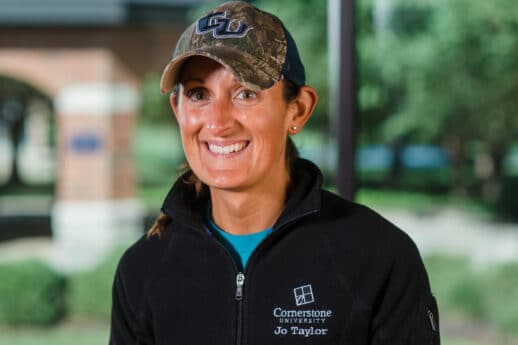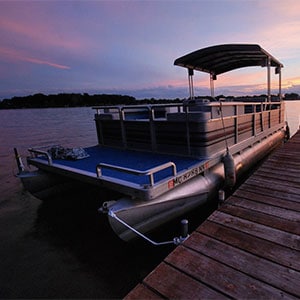In the finance world, readers are often forewarned when perusing historical financial data: Past performance may not indicate future results.
The same is true in the hiring process.
In the job market, both the hiring managers and job seekers focus a lot on skills matching. When looking at resumes and at job interviews, hiring managers often look for and ask questions about the candidates’ specific experience.
They ask questions like, how many years of bookkeeping experience do they have? Have they used SAP or Quickbooks accounting software? How familiar are they using features in Microsoft Word or Excel? How would they handle “difficult” customers?
As a result, applicants often highlight their skills and experience in certain software applications, hardware environment or management systems in their resumes. Placement agencies develop online tests that require applicants to accomplish certain functions on Microsoft Word or Excel within a limited number of clicks. And online application web interfaces look for specific keywords when filtering applications.
This approach to hiring and evaluation of applicants focuses on the candidates’ past. So, how do human resources professionals emphasize the potential future with new hires?
One of the key processes is to recognize the potential behaviors of the candidates in the new work environment. Rather than relying totally on evaluating the experience of the candidates, the hiring manager should also consider future-oriented conversations, particularly in the interview process.
As a hiring manager, you want to have an idea of what you can expect from this employee to help grow your organization.
5 Ways to Frame Potential-Oriented Interview Questions
A quick scan on web-based job boards shows many common hiring criteria for open positions. Here, we consider five common hiring criteria used in discovering more about a candidate. In each, we compare a past experience-based approach with one more focused on a candidates’ potential. We’ll find that a potential-oriented approach can leave the conversation open and indicate future results. Incorporating both perspectives can give you a better all-around view of the potential team member.
Example 1: Require a Bachelor’s Degree in a Related Field
Experience-based approach: The candidate has (or does not have) a bachelor’s degree. The candidate took a major in a field that we desire (or not).
Potential-oriented approach: “Tell me how your college experience has molded your worldview and your view on people and work.” “How does your study in the ______ field help shape you in your current and future vocation?”
Often, an applicant’s education is one of the first things included on a resume. While the experience-based approach is framed as a yes or no question that has clear standards to meet, the potential-oriented approach allows you to catch a glimpse of how their education has influenced them. It’s one thing to get a degree in the related field. It’s another thing to be shaped and empowered through one’s educational journey.
Example 2: Require a Minimum of Three Years Experience in a Particular Line of Work
Experience-based approach: The candidate has met (or more, or below) the minimum years of experience.
Potential-oriented approach: “What have you learned during your three years working in this field?” “How has the experience informed you as you move forward?”
Again, the experience-based approach to this criteria is framed as a yes or no question, a pass/fail. It’s easy to determine but also has limitations on what kind of information it can provide for you about their future success with your organization.
The potential-oriented approach, on the other hand, allows you to see how their experiences have affected them and see opportunities for growth in the future.
Example 3: Require the Knowledge for Using Particular Hardware, Software or Other Specialized Skill
Experience-based approach: “How many years have you worked with _____ equipment and/or software packages?”
Potential-oriented approach: “Describe your learning process with that equipment/software.” “What are the features you like about that hardware/software?” “If you were asked to provide user feedback about the equipment/software, what would you say?” “If you were asked to train a co-worker in using that equipment, what would be your approach?”
When you’re determining applicants’ familiarity with a particular skill set, you’ll want to know the extent of their experience. But you can also gather information about their other characteristics by framing this criteria with questions that allow them to describe their learning process and what they value in such a process.
Example 4: Detail-Oriented, Strong Organizational Skills
Experience-based approach: “How is your current work environment?” “How do you organize your daily work there?”
Potential-oriented approach: “Suppose you are asked to take a leading role in a project. How do you organize tasks, and how do you organize people?”
As a hiring manager, it’s important you know how the applicant currently performs in their job. You can get a glimpse of that information by asking experience-based questions. But by adding in hypothetical situation questions, you can see how they may respond to situations to improve your organization.
Example 5: Provide Excellent Customer Service
Experience-based approach: “Tell us a challenging customer service situation. How did you handle that situation?” “What was the outcome of that situation?”
Potential-oriented approach: “Imagine that a customer of ours makes a damaging, but unfair, comment on our social media account. How would you respond to that customer?”
Asking for examples and stories are valuable practices in an interview. With an experience-based approach, you ask for how they’ve responded in the past. With a potential-oriented approach, you catch a glimpse of how they might respond in a situation at your organization. Asking such hypothetical questions can allow you to determine their potential response with your customers.
Use Both Approaches to Find the Right Candidate
Experience-based criteria and questions are important as they reveal an applicant’s factual accomplishments and experience in the past. Future-oriented questions focus on how the past experience shapes the candidate views and the potential behaviors in the new work environment. You can use both approaches in your interview practices to discover the right candidate for your organization.












